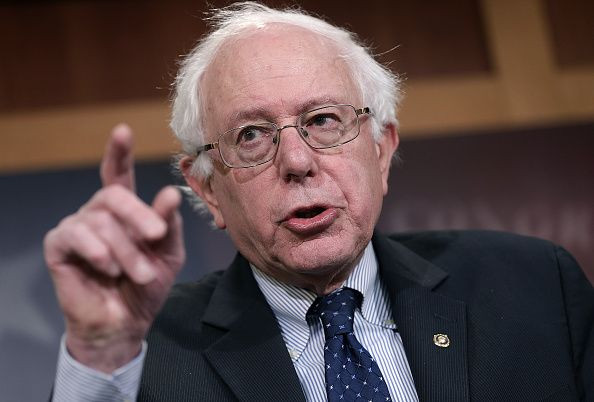Bernie Sanders 2016 Presidential Run: Independent Rumored To Announce On Thursday

America’s longest-serving independent Congress member, Sen. Bernie Sanders of Vermont, is expected to announce a run for the Democratic presidential nomination on Thursday, according to sources cited by Vermont Public Radio. The 73-year-old reportedly will release a statement on Thursday, but will wait “several weeks” to hold a large campaign event to start his run.
Sanders has made headlines this month for his staunch opposition to President Barack Obama’s proposed Trans-Pacific Partnership trade agreement, which he said will send hundreds of thousands of jobs overseas, devalue American goods and hurt the working class. The TPP dismantles some international economic barriers between Pacific states to encourage more goods exporting and importing. The White House defends the TPP as an agreement that will reduce America’s multibillion-dollar monthly trade deficit by making it easier to export to the TPP’s other 13 potential signatories.
BREAKING: @SenSanders to announce presidential run Thursday, @VPRKinzel has confirmed. http://t.co/HtaRclxUSi #VTpoli pic.twitter.com/EC9IN5IhJm
- Vermont Public Radio (@vprnet) April 28, 2015Sanders promised earlier this month to make a decision about what would be his first presidential run by the end of April. If he announces a run, he would become the second Democratic candidate to do so behind former Secretary of State Hillary Clinton, who is widely considered to be the Democratic front-runner.
Earlier this month he criticized Clinton for not taking a clear stance on the TPP, the Keystone XL pipeline and other key 2016 issues, rhetorically asking “what is Hillary Clinton campaigning on?”
Experts are split on Sanders’ chances in 2016, some saying that while he offers a strong opposition voice in the Democratic field, he may lean too far left to win votes with moderates. He has traveled to several key elections states in recent months to speak with voters.
The Brooklyn-born independent's political career started off rough. Sanders lost two U.S. Senate elections and two Vermont gubernatorial elections by wide margins between 1972 and 1976, but finally captured a victory in the 1981 Burlington mayoral election when he unseated six-term incumbent Gordon Paquette by just 10 votes. He won re-election three times, but would lose two more elections for Vermont’s only House seat before winning it in 1990. He was re-elected seven times before successfully running for the open Senate seat left vacant when longtime Vermont Sen. Jim Jeffords retired in 2007. Although elected as an independent, Sanders caucuses with the Democrats and is the ranking minority member of the Senate Budget Committee. He was chairman of Veterans Affairs when Democrats held the majority.
Texas Sen. Ted Cruz, Kentucky Sen. Rand Paul and Florida Sen. Marco Rubio have all announced their candidacy for the Republican nomination. The Republican field is expected to widen to more than 10 candidates.
© Copyright IBTimes 2025. All rights reserved.






















